Gaming's most difficult decisions
Pop quiz, hotshot: What do you do?
Advance Wars: Dual Strike
The choice: Dual Strike's finale sees the fresh-faced hero, Jake, facing down the game's chief antagonist: Von Bolt, a septuagenarian ne'er-do-well who survives inside a vampiric life-support system. It's fairly easy to isolate the exact point at which the Advance Wars games tipped from “jolly tactical adventure” into “grim Kojima-esque rumination on the horrors of war”: it's the moment when Jake is forced to choose whether or not to put a bullet in Von Bolt's withered old head.
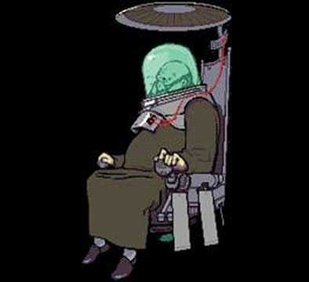
The stakes: To stave off the inevitable embrace of the reaper, Von Bolt does what any cornered villain in any hastily-written Star Wars pastiche would do: deliver a speech to Jake about how you're not so different, you and I, if you were in my position you'd do exactly the etc etc. The stakes aren't so much “who is going to kill this horrible old buzzard” as “how can the process be expedited to cut his soliloquy as short as possible?”

Above: Worst henchman ever
Your best bet: The actual choice here is, “exactly how much of a bastard do you want Jake to be?” Opting to kill Von Bolt sees Jake destroy his life-support system, condemning him to a slow death while conveniently avoiding the guilt of directly shooting an old man in the face; choosing mercy, meanwhile, sees Von Bolt's subordinate shoot the old man, again absolving Jake of any direct responsibility. Whatever you choose, Von Bolt's going down; and either way, Jake is kind of a dick.
Splinter Cell: Double Agent
The choice: Undercover with a domestic terrorist cell, tarmac-voiced hero Sam Fisher's allegiances are put to the test when his long-time mentor Irving Lambert is captured by the villains. Fisher has to choose between killing his buddy to maintain cover, or shooting his closest contact within the terrorist cell and being revealed as an infiltrator. Fisher is surprisingly perturbed by the choice: surely “agonizing gunpoint decisions of loyalty” is the first class attended by anyone wanting to graduate with a degree in Being a Tom Clancy Character? It's not exactly a one-off dilemma is all we’re saying...
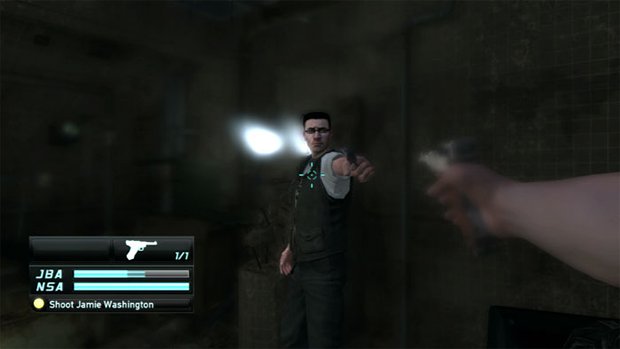
The stakes: No game with a colon in the title will ever offer the character a genuinely open-ended choice with genuinely far-reaching consequences, and this is a perfect example of that seemingly ridiculous rule. As an installment in a highly successful franchise, Splinter Cell can't offer any momentous choice without later redressing the outcome of that choice to preserve continuity: either Sam kills Lambert and lives to kill the scoundrels who forced him to make such a decision, or Sam kills the scoundrels and his friend dies later in the game anyway. They can't release two versions of the next game depending on what decision you made in this one, after all. Again: colon in title = deceptively non-linear story.
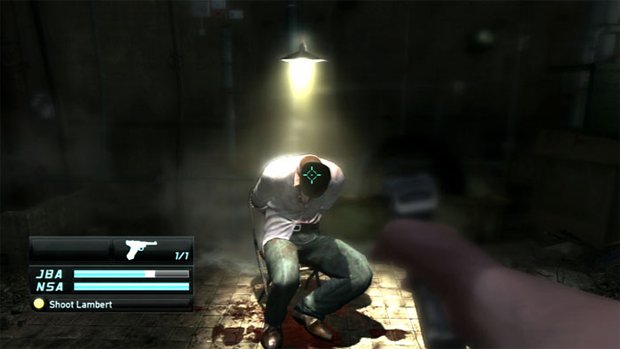
Your best bet: Armed with the knowledge that your decision won't do a damn thing in the game's larger context, the choice becomes one of simple pragmatism. If you shoot your terrorist handler, will your path through the game's next sequence be immeasurably more difficult? Yes it will. Does that path end in Lambert dying anyway? In fact it does! Machiavellian survival instincts FTW.
Sign up to the GamesRadar+ Newsletter
Weekly digests, tales from the communities you love, and more
inFamous
The choice: Like plenty of games with continual sliding scales of good and evil (Black and White, Fable, Fallout 3), inFamous is constantly offering you little moral decisions that actually matter, interspersed with larger moments of apparent importance that are secretly inconsequential. One such moment occurs late in the game, where you have the choice of saving your girlfriend Trish or rescuing six doctors who can help cure the pandemic threatening the city. (This is known among ethicists as the trolley problem.)
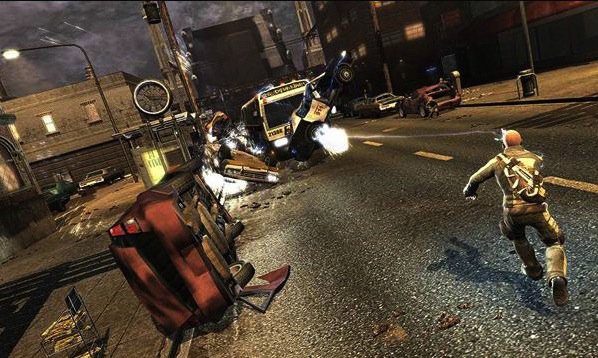
The stakes: It seems like you can either save your girlfriend at the expense of the city's health, or sacrifice a loved one for the greater good – but the game plays dirty. Choosing to save Trish reveals that the girl is a dummy, and the actual Trish dies with the doctors; whereas if you decide to save the doctors, the real Trish falls to her real death. This tangled variation on the Schrödinger's Catparadox is halfway solved by the game's adoption of a complicated time-travel subplot... making it only half of a really shitty plot twist.
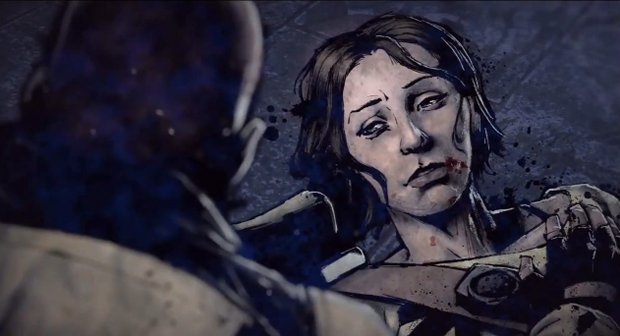
Your best bet: Now that you know that the game's bent on making you save the day while becoming a miserable bastard, you might as well let the girl die while resolving to beat the tar out of the chicaning cad that forced you into such a thankless position in the first place. Lamentably, the game's writers themselves never make an in-game appearance, so beating up the villain will have to do.
Apr 20, 2011


Gaming’s toughest decisions and murkiest moral dilemmas. Which side did you pick?

Happy endings? Crappy endings, more like

Fascinating facts and surprising statistics from last week's controversial countdown


